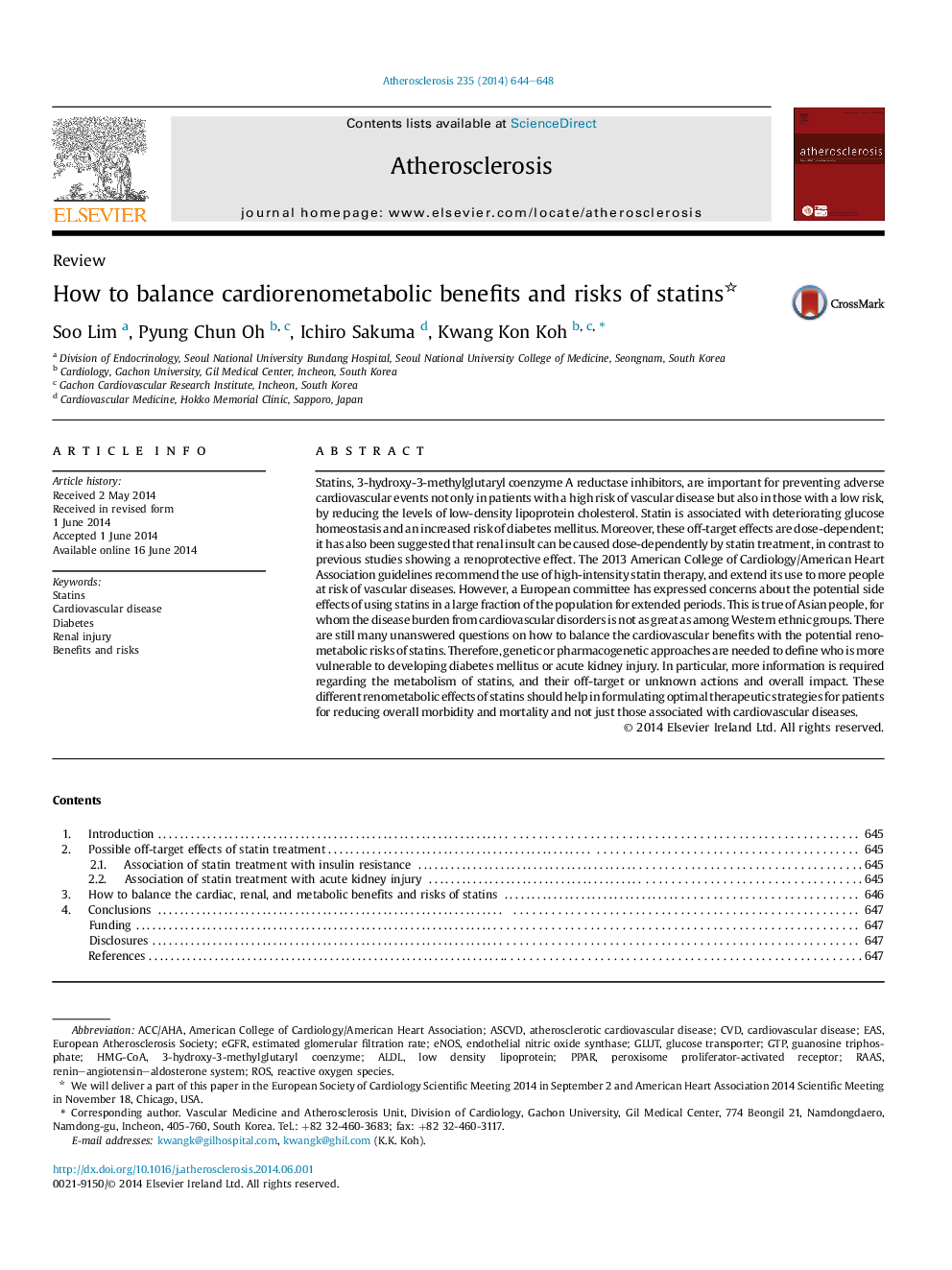| Article ID | Journal | Published Year | Pages | File Type |
|---|---|---|---|---|
| 5946024 | Atherosclerosis | 2014 | 5 Pages |
â¢Increased risk of diabetes mellitus and renal insult of statins are dose-dependent.â¢How to balance cardiovascular benefits with potential renometabolic risks of statins has not yet been discussed in detail.â¢More information is required regarding metabolism of statins, their off-target or unknown actions, and overall impact.â¢Optimal therapeutic strategies to reduce overall morbidity and mortality, not just cardiovascular diseases are needed.
Statins, 3-hydroxy-3-methylglutaryl coenzyme A reductase inhibitors, are important for preventing adverse cardiovascular events not only in patients with a high risk of vascular disease but also in those with a low risk, by reducing the levels of low-density lipoprotein cholesterol. Statin is associated with deteriorating glucose homeostasis and an increased risk of diabetes mellitus. Moreover, these off-target effects are dose-dependent; it has also been suggested that renal insult can be caused dose-dependently by statin treatment, in contrast to previous studies showing a renoprotective effect. The 2013 American College of Cardiology/American Heart Association guidelines recommend the use of high-intensity statin therapy, and extend its use to more people at risk of vascular diseases. However, a European committee has expressed concerns about the potential side effects of using statins in a large fraction of the population for extended periods. This is true of Asian people, for whom the disease burden from cardiovascular disorders is not as great as among Western ethnic groups. There are still many unanswered questions on how to balance the cardiovascular benefits with the potential renometabolic risks of statins. Therefore, genetic or pharmacogenetic approaches are needed to define who is more vulnerable to developing diabetes mellitus or acute kidney injury. In particular, more information is required regarding the metabolism of statins, and their off-target or unknown actions and overall impact. These different renometabolic effects of statins should help in formulating optimal therapeutic strategies for patients for reducing overall morbidity and mortality and not just those associated with cardiovascular diseases.
